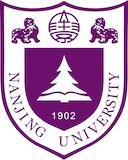这门课学到了什么?
Reading
阅读是开展一切研究工作的基础。
阅读的过程
- 起步阶段:综述论文、领域经典、公开课、报告、教科书
- 进阶:正向/反向遍历
- 收敛:“跟踪” 最新研究论文;“virtually re-implement”
从今天开始,整理论文列表
- 粗筛 (1): 10—15 年内顶会 (软工/PL/系统/安全...) 论文标题
- 粗筛 (2): 论文摘要
- 泛读:introduction; related work
- 精度:真正相关的论文
Writing
好的写作建立在阅读的基础上。
层次结构
- Abstract 扩展为 Introduction
- Introduction 扩展为全文
逻辑流
- 连贯、通顺
- 有理有据、令人信服
Hacking
实践出真知。
时刻作为软件工程的实践者
- 自己的代码
- 参与/hack开源项目
- ……
颁奖
Evaluation Process
Distinguished Review Award
- 导师直接安排好了 (暗箱操作)
Distinguished Proposal Award
- 参考 peer review + 导师打分
- 选出 6 个 candidate
- 最终
暗箱操作评选出 3 个- Award is random!
Distinguished Review Award
崔子寒
侍林天
孙泽雯
Distinguished Proposal Award
陈金池
“A Framework for Automatic Rollback of Context-Aware Systems Suffering Uncertainty”
曾子涵
“OOD Detection by Interpreting Deep Neural Network”
朱庭纬
“Mtcia: Migrate UI Test Cases between iOS and Android”
总结
二周目总结
课程教学
- 大体保持一致;但课时略少
同学参与
- 报告
- 报告的质量有提高,但 “强制读论文” 没有达到预期
- Research Proposal
- 装订成册存档 (明年我们考虑 OJ 编译 latex)
- Programming Assignments
- 增加了 artifact evaluation
三周目
- 英文授课?其他建议?
Take Away Messages
多读 (reading)
- 理解别人在做什么
多写 (writing/hacking)
- 灵感的来源
挑战真正困难的问题、做有影响力的好工作


